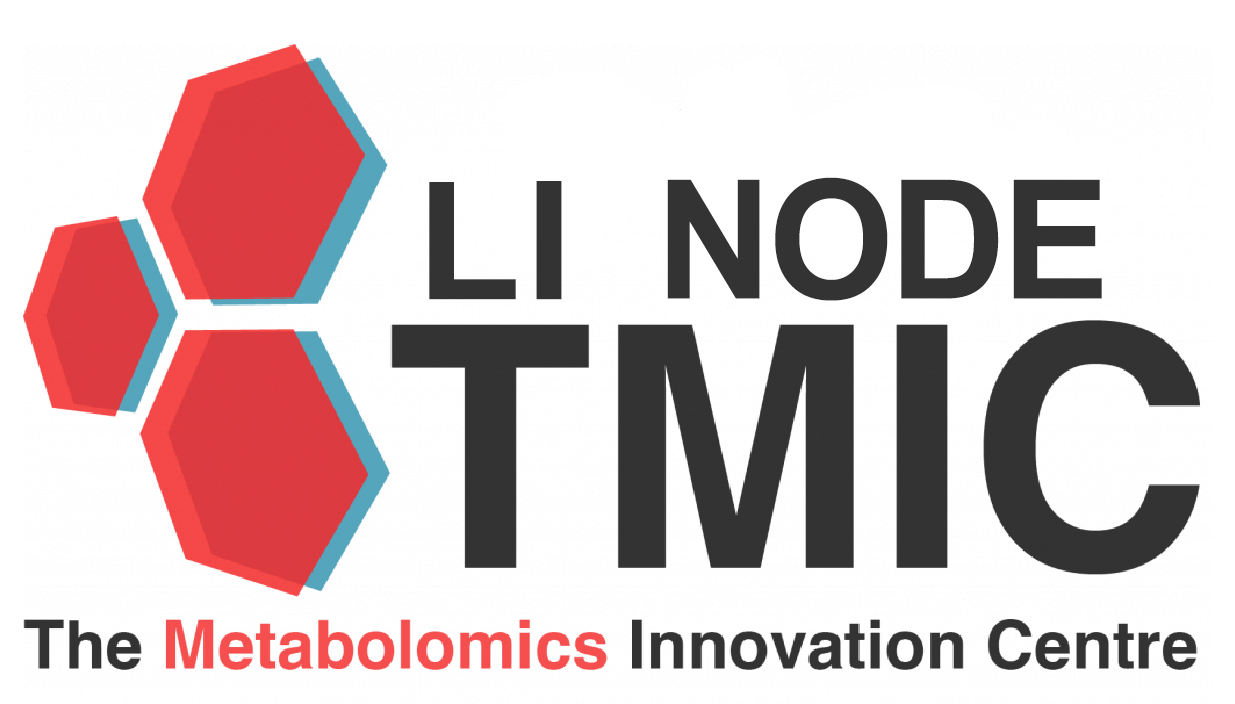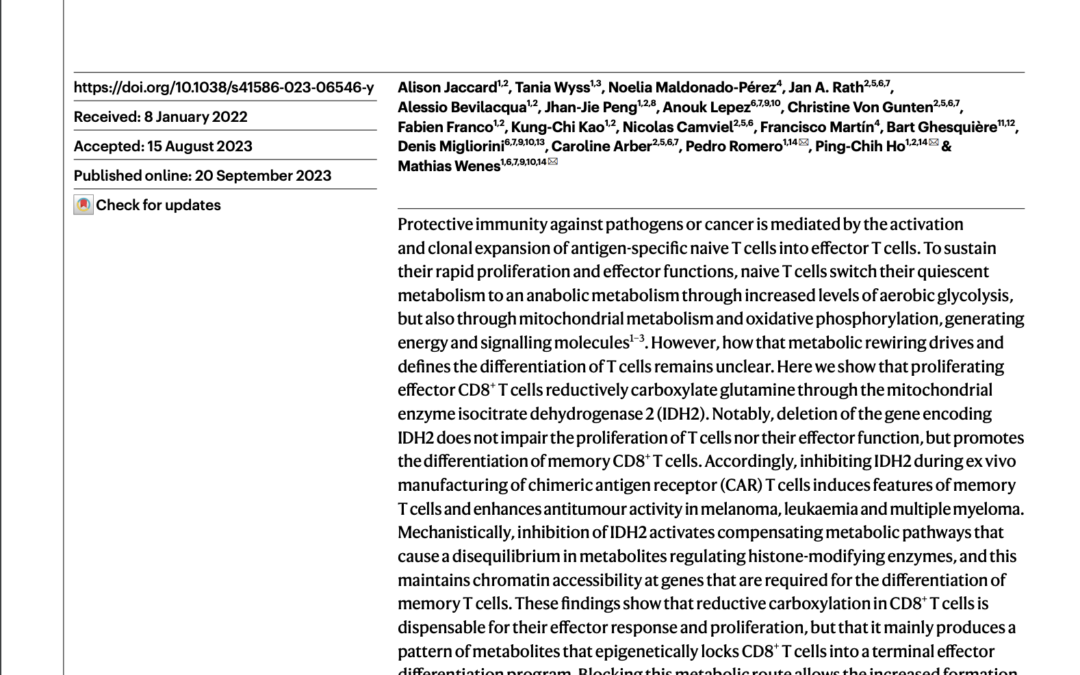In a groundbreaking study on the path to immunity against cancer, a team of oncologists from the University of Lausanne led by Dr. Pedro Romero, Dr. Ping-Chih Ho and Dr. Mathias Wenes published their paper on T cell proliferation in Nature.
FIND THE FULL PUBLICATION HERE
Client Background and Research Interests
Dr. Romero, Dr. Ho and Dr. Wenes are prominent figures in the field of immunology, particularly known for their research on T cell responses and cancer immunotherapy. This includes developing novel immunotherapeutic strategies to enhance anti-tumor immune responses and more specifically, examining how metabolic processes influence T cell function and differentiation. This area of research focuses on how metabolic pathways can be targeted to enhance T cell responses against cancer.
The Challenge
To support their rapid growth and function, T cells switch from a quiescent to an anabolic metabolism, using mitochondrial metabolism for energy and signaling molecules. However, how that metabolic rewiring drives and defines the differentiation of T cells remains unclear. Although it has been suggested that CD8+ T cells could reductively metabolize glutamine to lipids under hypoxia, how this affects the function and differentiation of TE cells remains unknown.
To address this, the study utilized the TMIC Li-Node’s unique and innovative metabolomics solution: high performance chemical isotope labeling (HP-CIL) LC-MS technique to target the tricarboxylic acid (TCA) cycle metabolites.
The Solution
High Performance Chemical Isotope Labeling LC-MS technique offers an accurate and sensitive analysis for high coverage metabolite profiling. This unparalleled technology proved crucial for this study, as the quantitative HP-CIL LC-MS approach allowed the researchers to determine the absolute concentrations of metabolites without purchasing costly internal standards for all metabolites.
Compared to conventional LC-MS methods, CIL greatly enhances the accuracy and precision of metabolite quantification. By generating isotopically labeled internal standards, it allows for a direct comparison of metabolite concentrations between samples, reducing variability caused by sample preparation or instrument drift.
With advanced mass spectrometry equipment from The Metabolomics Innovations Centre (TMIC), the TMIC Li-Node is capable offering a comprehensive quantitative analysis of the metabolome, covering up to 10,000 metabolite candidates with the HP-CIL platform.
The Discovery
By leveraging the high precision of a robust metabolomics platform, the researchers investigated how inhibition of the mitochondrial enzyme isocitrate dehydrogenase (IDH2) affects mitochondrial metabolism. Subsequent metabolomics analyses revealed how the inhibition of IDH2 affects the metabolism of three major mitochondrial fuels previously characterized in T cells. This presents a promising approach for enhancing T cell therapies.
The study underscores the importance of metabolic pathways in T cell differentiation and offers a potential strategy to boost the effectiveness of CAR T cell therapies by manipulating these pathways.
Adding Value to the Project
This research paper’s success demonstrates the ingenuity of HP-CIL LC-MS technique for biological mechanism study. The technique’s high reproducibility allowed these researchers to obtain consistent results, legitimizing their groundbreaking work on creating effective therapeutic solutions to cancer.
As a world-leading metabolomics research centre, TMIC Li-Node provides metabolomics assays using this unique technique to produce extremely valuable insight into crucial metabolite pathways. Offering rapid turnaround times, cutting-edge mass spectrometry technology and supplementary detailed analyses in the final report, the Li-Node team fosters effective research collaborations and partnerships with clients
If you would like to learn more about how our expertise can support your research, please contact us.
References:
Romero, P., Ho, P., Wenes, M. et al. Reductive carboxylation epigenetically instructs T cell differentiation. Nature volume 621, pages849–856 (2023)
https://www.nature.com/articles/s41586-023-06546-y#Abs1

